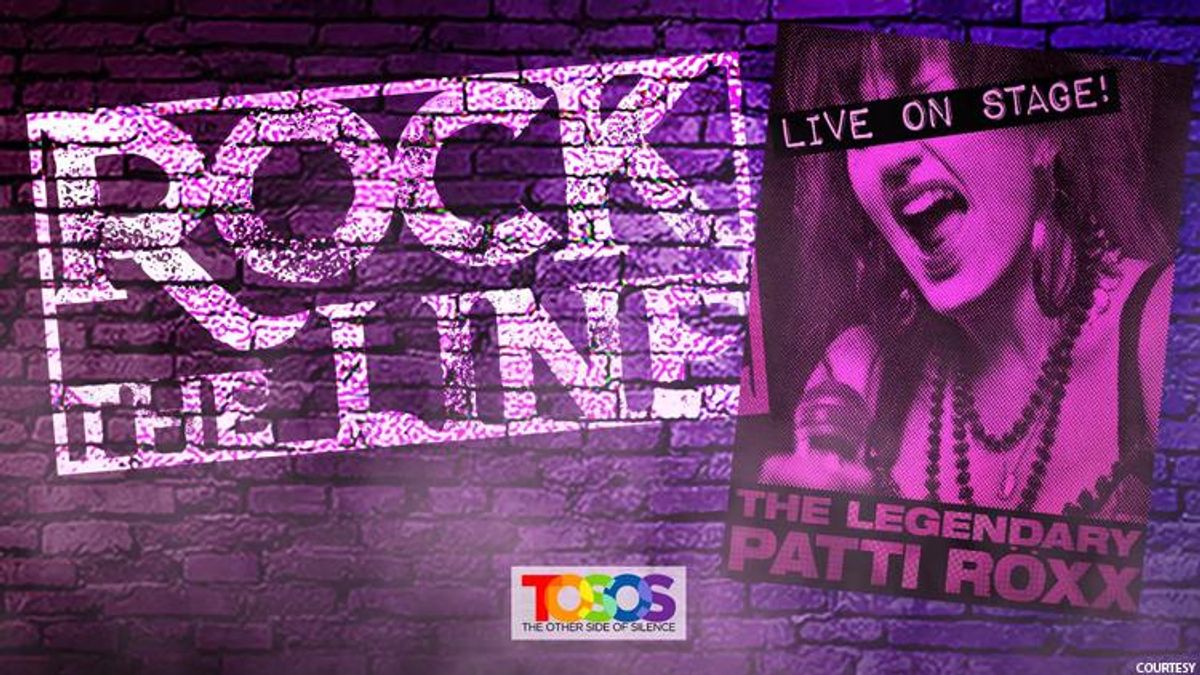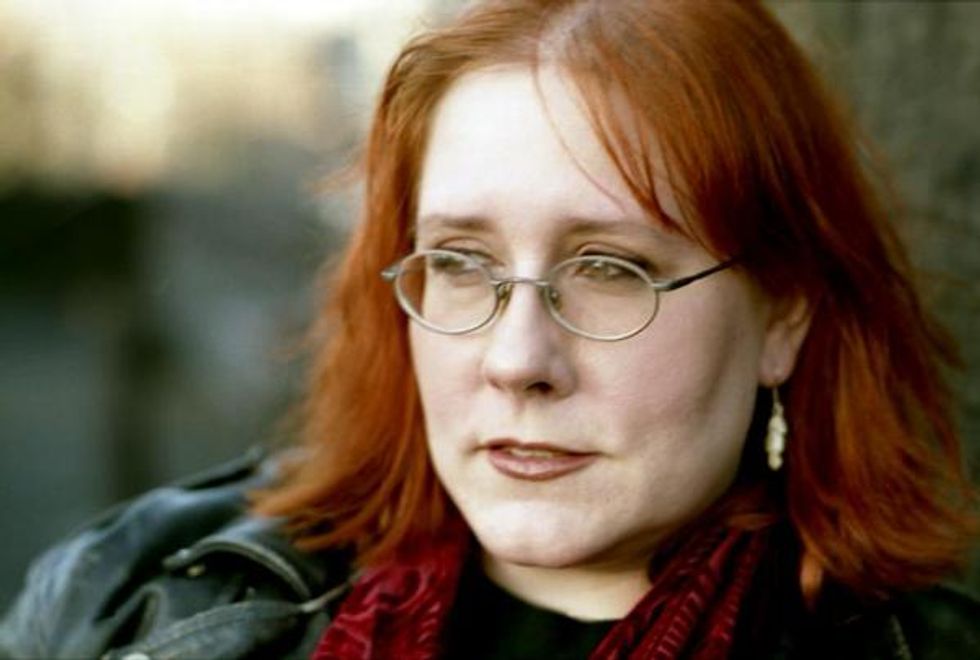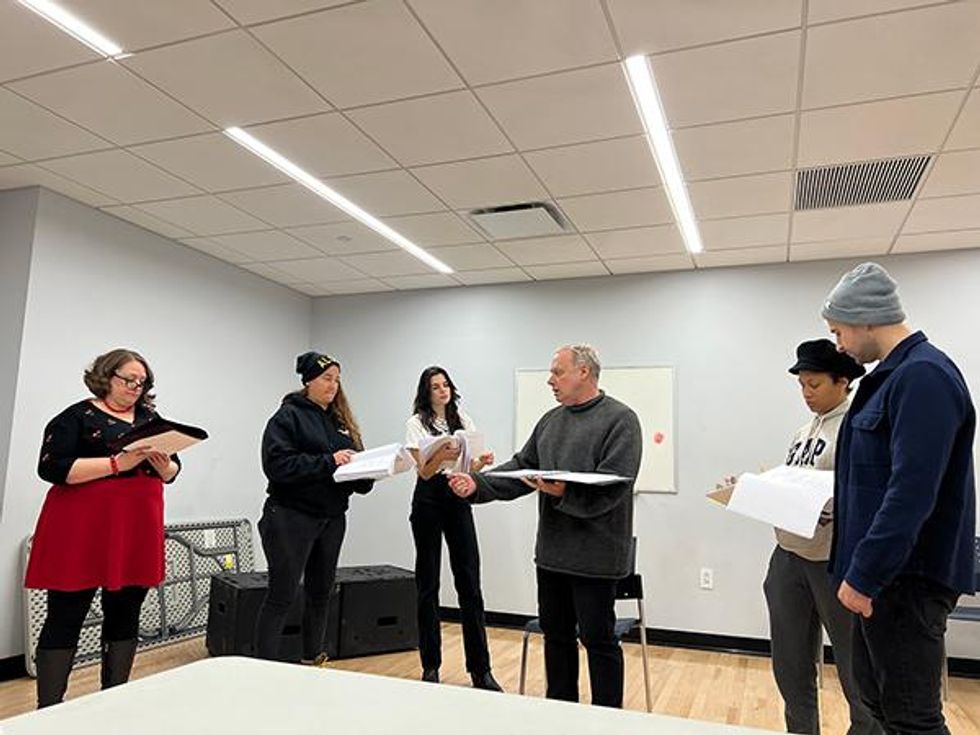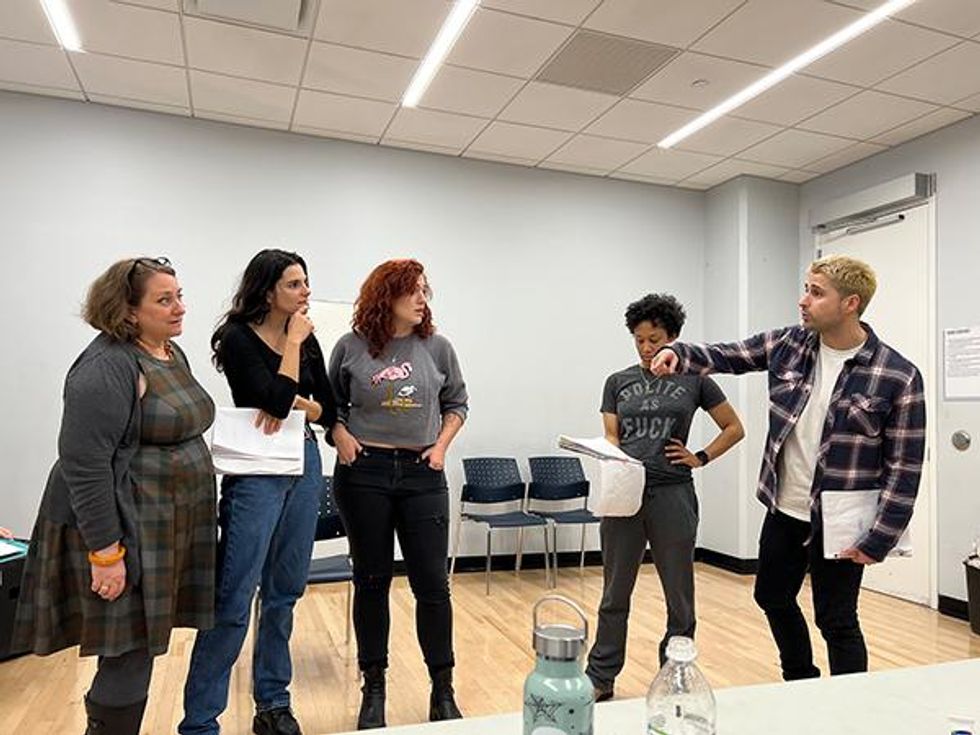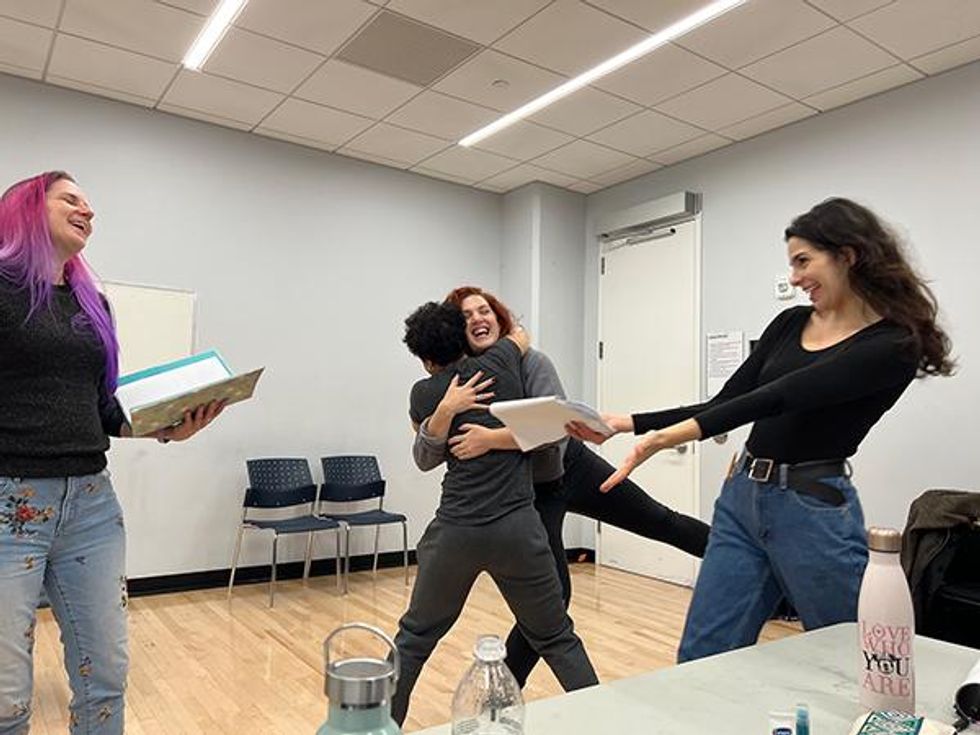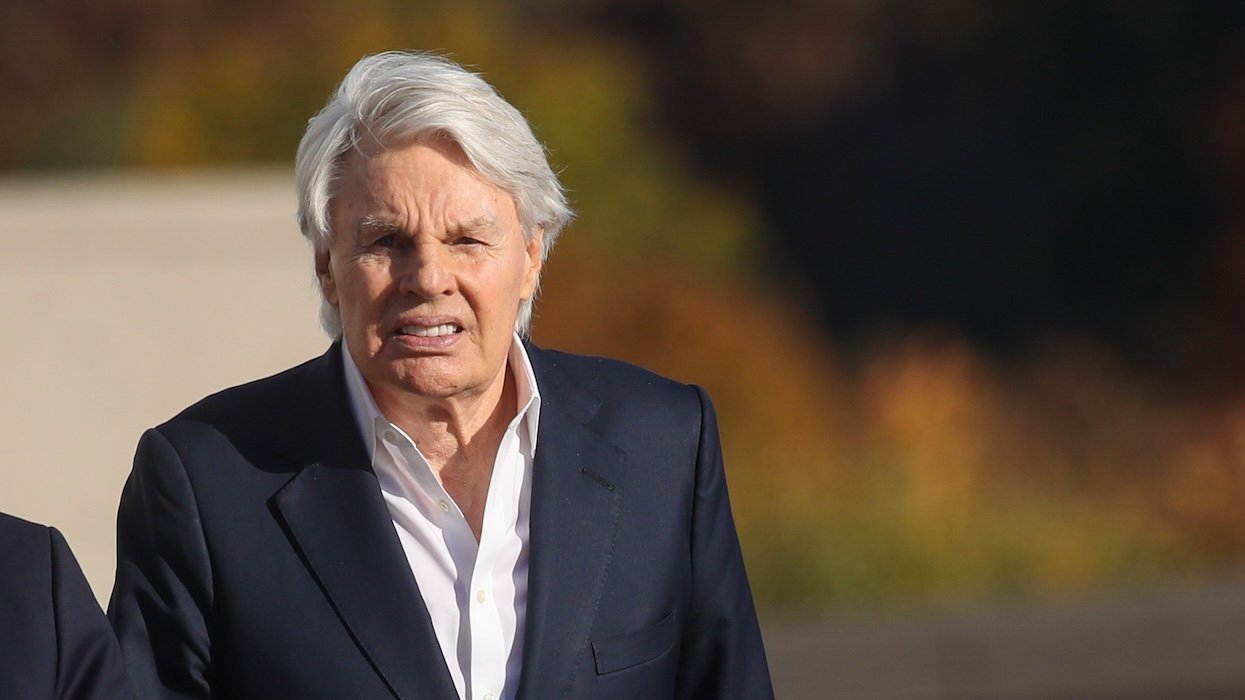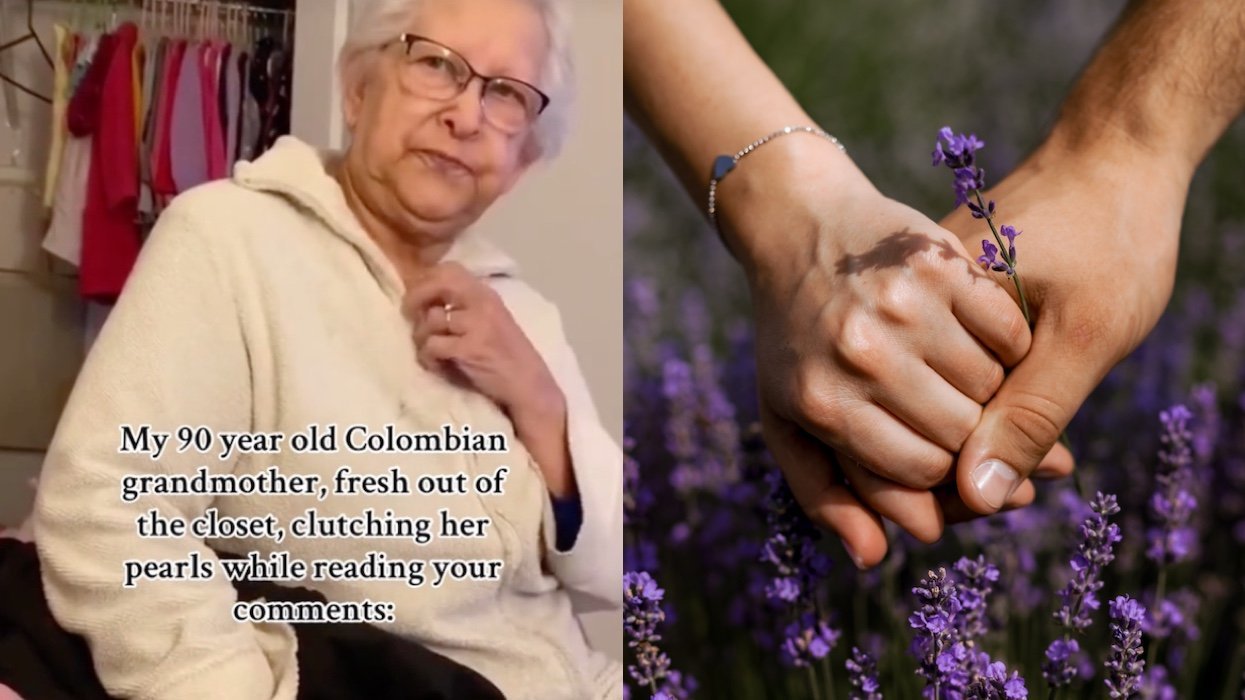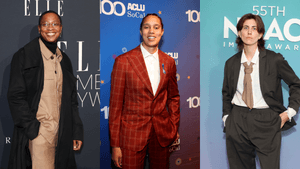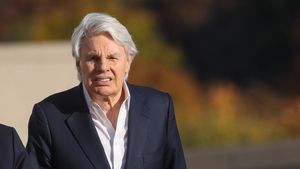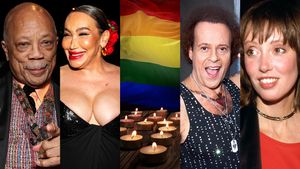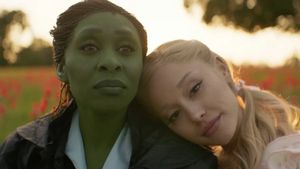Rock The Line, a play written by Kathleen Warnock and directed by Mark Finley, tells the story of a band of outsiders who gather in a parking lot outside of Rust Belt rock club, all to get the best spots to see Patti Roxx, their icon, perform.
She gets them, they get her, and they'd all sell their souls for rock and roll.

The Advocate: How was the process of putting this together?
KW: We had so many people sign up to audition for this. We put it out on a platform called Actors Access, and then we got over 800 submissions for the seven parts. ...We narrowed it down to about 100 people and we did see all of them! We did callbacks and got a really outstanding line up of actors, at least one of whom I knew and wanted to work with before because I'd seen her around and some others.
The Advocate: Given how intrinsically queer the play is, are the actors as well?
KW: While we don't check their credentials at the door, I think most of them are queer. Some people come in and they say, "my pronouns are they/ them," like, good job!

The Advocate: Did you have a say in terms of who was cast?
KW: I just got really good feels from the audition, and the way that it works in casting is that the director and I discuss it, and [although] according to the Dramatists Guild, I have absolute say over casting, but I don't think that you should have absolute say over anything like that because somebody can always have an idea that that makes your work better.
So Mark Finley and I have worked together for a while. People [have] said, "Well, he's done a lot of your work, hasn't he?" This is the third one. He did play the lead in a play that I wrote that we ended up taking to every wide spot in the road for a few years, which was so much fun...a play called The Further Adventures of which was about a young writer girl and her obsession with a TV show from the fifties that was totally queer subtext and her looking up and finding out about the real people behind it. So we had a lot of fun doing that show and we took it to Ireland and we took it to Fringe and we did it a couple of times, on sort of a double bill that we made up with some friends of ours from Ireland. We had a really nice time working on that one!
So yeah, Mark I trust and we were back and forth a lot, " Well, I like this one, I like that one," and we reach someone that we're both happy with.
The Advocate: And now you have all the people and parts together.
KW: They're all in the room and they're working, they're doing great work, and we also have a licensed fight coordinator in there because I've written some pretty serious fight scenes into this. And I even say in the script: do not attempt to produce this play without a certified fight coordinator. And it's also a woman fight coordinator! I have found in my travels that women love to do fight scenes and there aren't nearly enough of them written. And so they're finding their character, their feet.

The Advocate: You're fully in rehearsals, and then?
KW: And then we're taking a short break...and going right into the theater, doing check, making sure all the costumes and props are right costume because these are very important things. And we have a great costumer--his name is Ben Philip, and he's also on staff of The Marvelous Mrs. Maisel. He's working on leather jackets and you know, well, I'm sure that with hair we're going to have a lot of big hair. This is set in the mid to late nineties
The Advocate: This is a female-led, queer storyline. What were the challenges in bringing it before the public?
KW: One of the things that you get a lot when not just when you're a woman playwright, but especially when you're a lesbian playwright, you will have artistic directors tell you, "Oh, lesbians don't come to the theater" or "I can't sell a lesbian play." And in fact, with Jewel Gomez, the last two plays and with Bar Dykes, we had some of the highest attendance we have ever had at TOSOS' place, and that made me very happy.
So I think some of it is that sort of it's confirmation bias, "Oh, we can't sell a lesbian play," therefore the lesbian play will not sell. So you have to do what you have to do. And now we're in whatever the brave new world of post-pandemic audiences are. We did not have great attendance at our summer place, and that was our first play that we had produced since the pandemic.

The Advocate: Is there anything, in particular, you're hoping for moving forward?
KW: So I am hoping to do well with this and hoping that stories like this will make people curious enough to come see a play. You know, that's about rock and roll and has women fighting and kissing and and lots of shouting.
The Advocate: And a lot of music, too.
KW: Yeah.
Rock The Line is being performed Wednesdays through Saturdays, starting January 11th and through to February 4th, at the Flea Theater, and produced by TOSOS (The Other Side of Silence, from the George Eliot poem), NYC's oldest and longest producing LGBTQ+ theater company.
